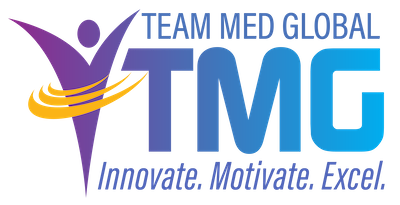 Self-confidence is more than just a feeling; it’s a critical component of professional success. That’s why it’s a component of the Executive MSP Competency Model and the Executive Provider Enrollment Professional Competency Model. A deep-rooted sense of confidence can profoundly influence decision-making, leadership, and interpersonal relationships. Let’s dive deeper into the psychological underpinnings of self-confidence, its significance for MSPs, and strategies to cultivate and sustain it in the workplace.
Self-confidence is more than just a feeling; it’s a critical component of professional success. That’s why it’s a component of the Executive MSP Competency Model and the Executive Provider Enrollment Professional Competency Model. A deep-rooted sense of confidence can profoundly influence decision-making, leadership, and interpersonal relationships. Let’s dive deeper into the psychological underpinnings of self-confidence, its significance for MSPs, and strategies to cultivate and sustain it in the workplace.
Understanding Self-Confidence at Its Core
Self-confidence stems from a blend of self-efficacy and self-esteem. Self-efficacy is your belief in your ability to accomplish specific tasks, while self-esteem relates to your overall evaluation of your own worth. As MSPs who often work under scrutiny and must adhere to strict regulations our ability to embrace these components is vital. High self-efficacy in professional capabilities can foster greater confidence in handling job-specific challenges, whereas robust self-esteem supports resilience and personal integrity, critical in a high-stakes healthcare environment.
The Importance of Deep Self-Confidence for MSPs
Enhanced Problem-Solving Skills: Deep self-confidence equips MSPs with the mental clarity to solve problems efficiently. Confident MSPs can assess situations more objectively and innovate under pressure, essential in roles that require continuous adaptation and meticulous attention to detail.
Resilience in the Face of Adversity: The healthcare setting is fraught with challenges, from navigating complex bureaucracies to managing sensitive data. A deeply confident MSP can recover quickly from setbacks, viewing them as opportunities for growth rather than insurmountable obstacles.
Influential Leadership: Deep self-confidence enables MSPs to lead by example, fostering a workplace culture of trust and mutual respect. Confident leaders are better equipped to mentor others, delegate effectively, and drive initiatives that improve departmental or organizational performance.
Authentic Interpersonal Relationships: Self-confidence allows MSPs to communicate more openly and assertively, leading to more authentic and constructive interactions with colleagues, providers, and administration.
Strategies to Cultivate Deep Self-Confidence
Develop Competence Through Continuous Learning: Mastery breeds confidence. Prioritize continual professional development to deepen your expertise. Engage in advanced training, seek mentorship, and immerse yourself in the latest practices and technologies in our profession.
Reflective Practice: Regularly reflect on your experiences. This involves critically analyzing your successes and setbacks to understand what worked, what didn’t, and why. Reflective practice not only enhances your professional skills but also reinforces your internal narrative of capability and accomplishment.
Mindfulness and Self-Compassion: Integrate mindfulness practices to maintain emotional balance and reduce stress. Being kind to yourself, particularly during challenging times, can fortify your self-esteem and enhance your resilience, forming a solid foundation for sustained self-confidence.
Goal Setting with SMART Principles: Define clear, Specific, Measurable, Achievable, Relevant, and Time-bound goals. Achieving these goals will provide concrete evidence of your capabilities, reinforcing your self-efficacy.
Foster Cognitive Flexibility: Challenge and refine your thought patterns. Embrace flexibility in thinking to adapt to new information or unexpected situations. Cognitive flexibility can enhance your ability to maintain confidence under pressure by enabling you to see beyond immediate setbacks.
Strengthen Your Professional Identity: Engage in activities that reinforce your professional identity and values. This might include participating in professional communities, contributing to discussions, or publishing articles on key issues in your field. Such activities enhance your visibility and affirm your role as a competent and valued professional.
Physical Well-Being: Never underestimate the power of physical well-being on mental states. Regular physical activity, adequate sleep, and balanced nutrition can dramatically improve your psychological resilience and self-perception.
Deep self-confidence is transformative, particularly in a field as critical as ours. By investing in your psychological, emotional, and professional development, you create a resilient persona capable of navigating the complexities of the healthcare system with competence and grace.
